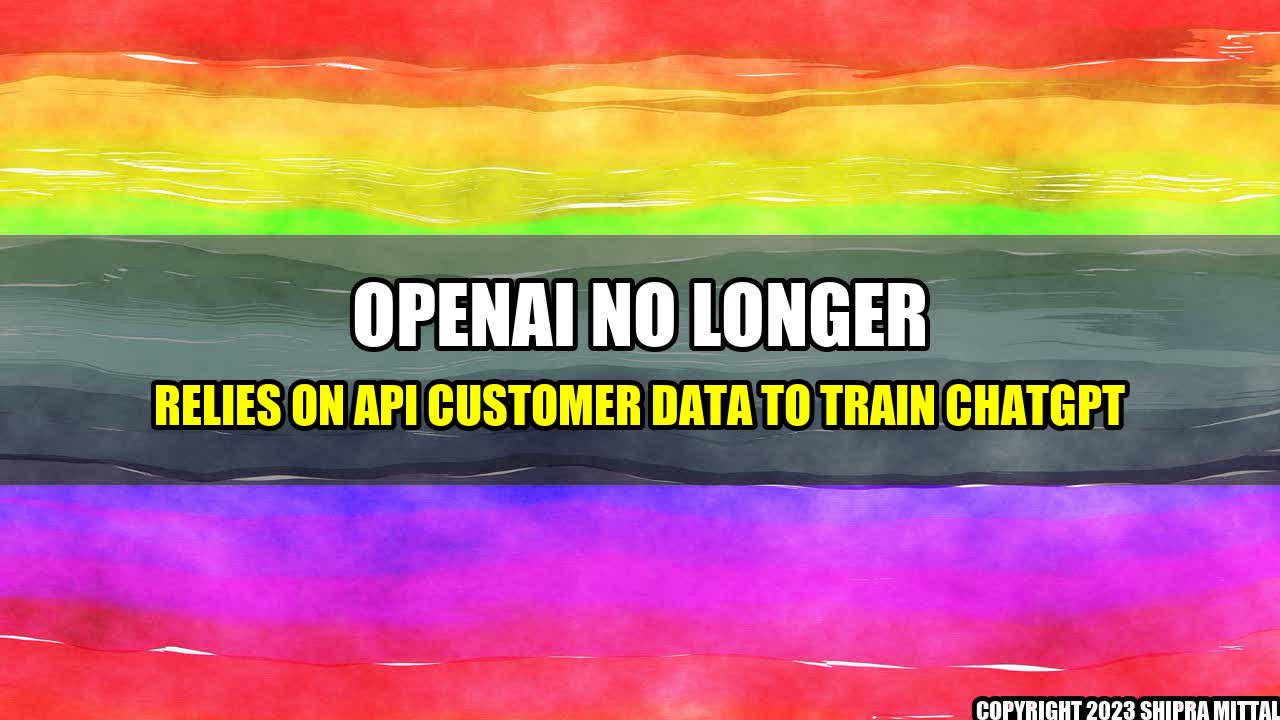Story
Imagine you're using a chatbot to help you complete a task. The chatbot seems to be understanding your requests and responding appropriately. However, you start to wonder: what is this chatbot learning about me as it interacts with me?
OpenAI, the AI research organization known for its powerful language model GPT-3, has been relying heavily on customer data to train its chatbot, ChatGPT. This has raised concerns about privacy and the ethical use of AI.
But now, OpenAI has announced that it is moving away from this approach. Instead, the company is using a new method of training ChatGPT that doesn't rely on customer data. This is a step in the right direction towards ethical and responsible AI development.

Akash Mittal Tech Article
Share on Twitter Share on LinkedIn